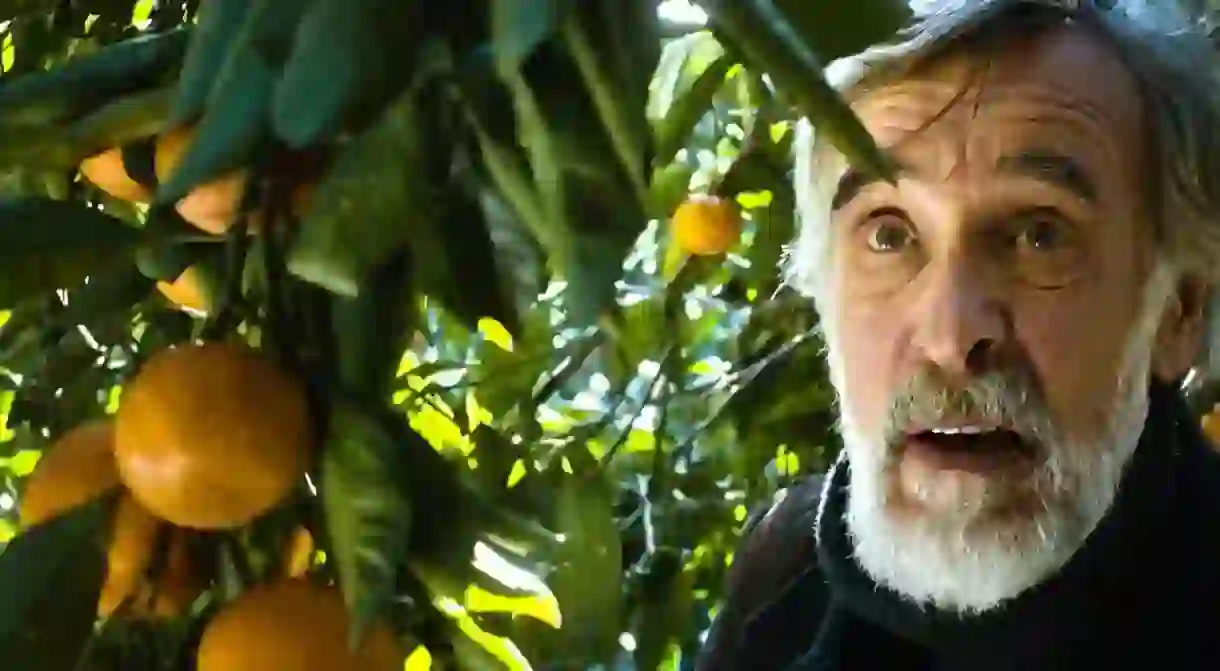6 Contemporary Georgian Movies You Should Watch

Georgian cinematography is almost as old as cinema itself. Georgia has a rich history of movie production, creating some of the greatest films that are still popular in post-Soviet countries. However, the collapse of the Soviet Union has affected the industry, and the road to contemporary cinematography has been hard and stressful.
Georgian cinema was a reflection of the country’s history, and it continues to show its current reality. So here’s a list of contemporary Georgian movies you might want to watch.
Gaseirneba Karabaghshi (Journey to Karabakh)
Journey to Karabakh, shot in 2005, is based on the best-selling novel of the same name and tells the story of a drug purchase gone wrong in the Caucasus. Two teenage boys from Tbilisi take a road trip to Armenia to buy drugs. They get lost and end up in the conflict zone of Nagorno-Karabakh. One of the boys, Gogliko, is wounded and stays with the Azerbaijani militia, while Gio, the main character, crosses the border to Armenia. Throughout the movie, Gio has flashbacks of his relationship with his father and prostitute girlfriend he left back in Tbilisi.
Simindis Kundzuli (Corn Island)
In the movie Corn Island, a new island pops up in the middle of the river after a spring flood; the piece of land has no owner and is full of fertile soil. An ethnic Abkhazian old man and his orphaned granddaughter build a simple hut and plant corn on the island. They shelter a wounded soldier and protect him from those who are after him.
At Karlovy Vary International Film Festival, Corn Island won a Crystal Globe Prize.
Quchis Dgeebi (Street Days)
Street Days is set during a time when drug addiction rates were at a high in Tbilisi. A policeman arrests a jobless, 45-year-old heroin addict named Checkie and offers him a deal: give 16-year-old Ika drugs to blackmail Ika’s politician father. If Checkie agrees, he gets paid; if not, he ends up in jail. As he is in need of money for his family, there is no other way but to agree.
Grdzeli Nateli Dgeebi (In Bloom)
In Bloom takes place in Tbilisi in 1992, which was the first year after the collapse of the Soviet Union. Newly independent, Georgia is riddled with violence, including a war in Abkhazia and a society taking matters into their own hands. But for Natia and Eka, two teenage girls who are inseparable, life is just beginning. And they have to grow up quickly as they encounter patriarchal traditions, arranged marriages, as well as domestic and public violence.
Mandarinebi (Tangerines)
Tangerines is set in a rural village of ethnic Estonians in Abkhazia. After the outbreak of war in Abkhazia, most people leave the town and go back to Estonia, except for Ivo and Margus. Margus decides to postpone his move so that he can harvest his tangerine crop, while Ivo attempts to make enough wooden boxes to hold the tangerines.
As the film progresses, a conflict breaks out between two Chechen mercenaries, who are fighting on the Abkhazian side, and Georgian soldiers in front of Margus’ house. One person is left alive from each side. Ivo brings them both into his home and helps them.
Chemi Bednieri Ojakhi (My Happy Family)
In Georgia, which is a patriarchal society, it’s common for a family made up of three generations to live under one roof. In My Happy Family, Manana, who is 52 years old, decides to move out of her parents’ house without her family, including her husband, and live on her own. This decision shocks everyone.













